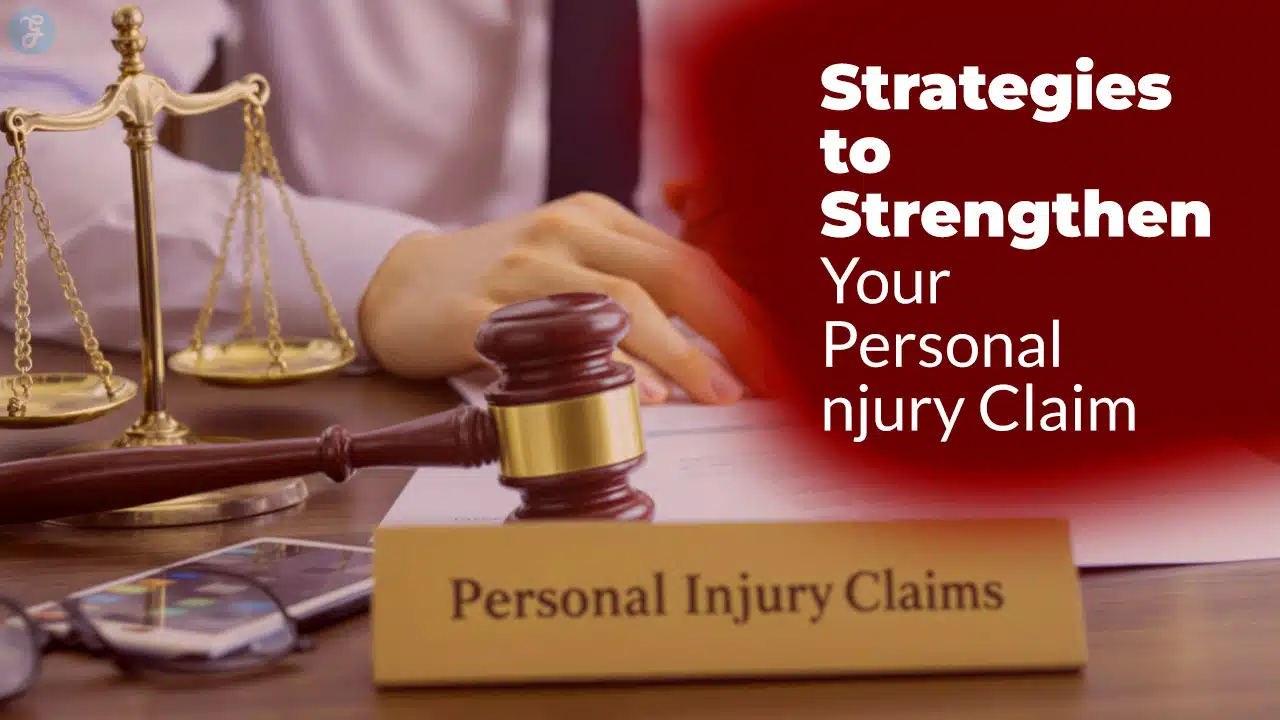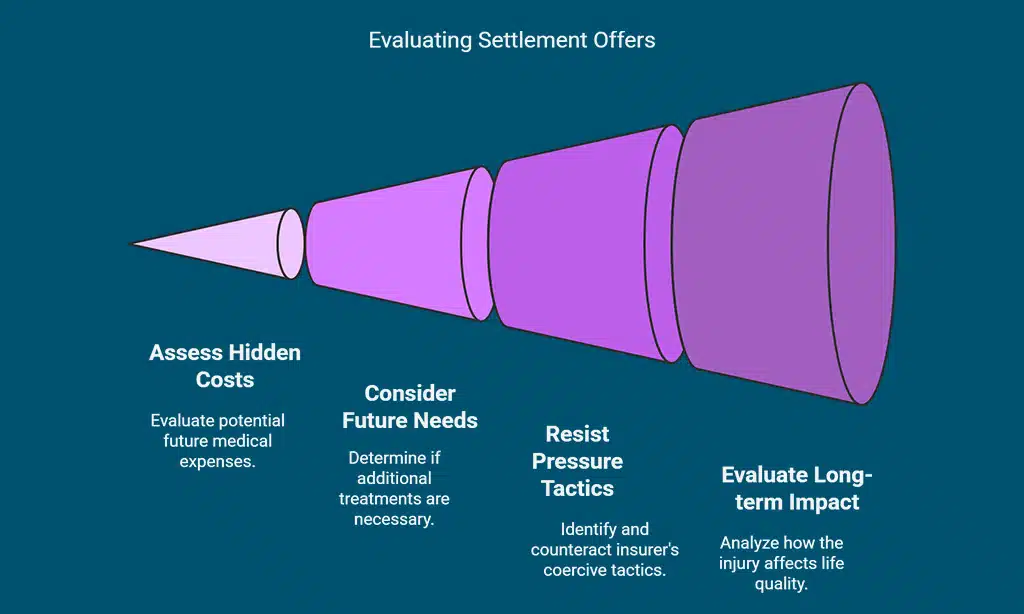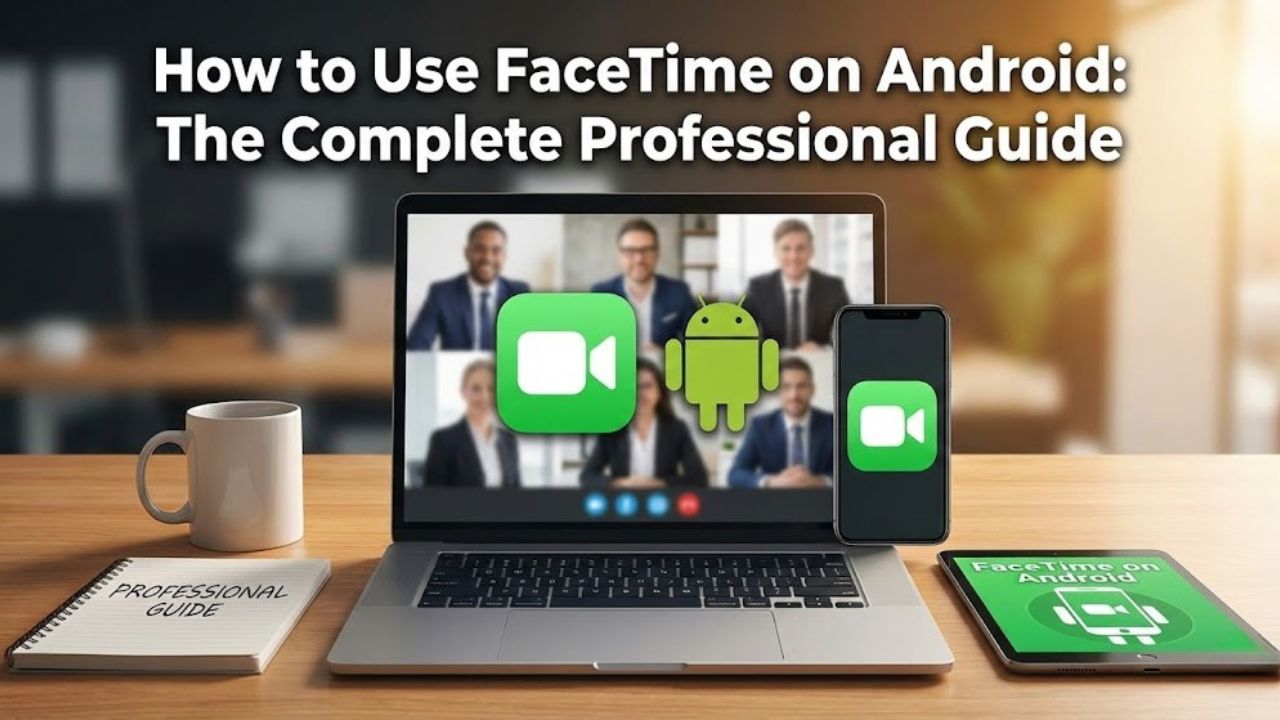When you’ve experienced an injury due to an accident, your primary focus should be on recovery, but you also need to ensure that your legal and financial interests are properly taken care of.
A well-handled personal injury claim can help you recover compensation for medical bills, lost wages, pain and suffering, and more. Unfortunately, without the right strategies, your claim might not yield the results you deserve.
This comprehensive guide outlines 10 strategies to strengthen your personal injury claim, backed by practical insights, real-life examples, and actionable tips to help you maximize your chances of a successful outcome.
Whether you’re starting the claims process or already in the thick of it, these steps will ensure you’re doing everything you can to protect your interests.
1. Seek Immediate Medical Attention
One of the most crucial strategies to strengthen your personal injury claim is ensuring that you receive immediate medical attention after an accident. Many injuries, especially soft tissue injuries like whiplash or concussions, might not show symptoms immediately, but they can worsen if left untreated.
Why Timely Medical Care Matters:
- Creates a Record of Injury: Medical records are an essential piece of evidence that connect your injury directly to the accident.
- Protects Your Health: Even if you feel fine, some injuries like internal bleeding or brain trauma can have delayed symptoms. Early diagnosis is key to treatment.
- Strengthens Your Claim: Without prompt medical care, insurance companies or opposing attorneys might argue that your injuries aren’t as serious or that they were caused by something other than the accident.
What to Do After an Injury:
- Seek medical attention, even if you feel fine.
- Keep copies of all medical records, including doctor’s notes, test results, and prescriptions.
- Follow through with recommended treatments to show the consistency of your recovery efforts.
Example Case:
A woman in a car accident did not visit the emergency room immediately after the collision. When she finally sought medical care a few days later, she was diagnosed with whiplash. The delay in seeking care led the insurance company to question the legitimacy of her injury, delaying her settlement.
2. Document the Incident Thoroughly
The more evidence you collect, the stronger your case will be. Thorough documentation serves as a concrete record of the accident, supporting your claims in the legal process.
What to Document:
- Photographs & Videos: Take pictures of the accident scene, your injuries, and any damages. Photos are vital in showing the full extent of the incident and injuries.
- Witness Information: If anyone witnessed the accident, make sure to get their names and contact information. Witness statements can provide valuable testimony in your favor.
- Police Reports: If the police were called to the scene, the official report can provide important details about the incident, including statements from the involved parties and any citations issued.
- Medical Documentation: Record every medical visit, treatment plan, and recovery update.
| Type of Evidence | What to Collect | Why It’s Important |
| Photographs/Videos | Scene of the accident, vehicle damage, and injuries | Provides visual proof of the incident and damages |
| Witness Statements | Names, phone numbers, and statements from witnesses | Corroborates your version of events |
| Police Reports | Police documentation, citations, and accident reports | Offers an official record of the incident |
| Medical Records | Doctor’s reports, prescriptions, diagnostic tests | Proves injury and treatment history |
Case Study:
A pedestrian struck by a car collected video footage from nearby security cameras, which captured the vehicle running a red light. This footage was vital in demonstrating the other driver’s negligence and securing a favorable settlement.
3. Consult with an Experienced Personal Injury Attorney
An experienced attorney will be your advocate, ensuring that you receive the compensation you deserve. They will handle all legal aspects, negotiate with insurance companies, and represent you in court if necessary.
Why You Need a Personal Injury Attorney:
- Specialized Knowledge: Personal injury law can be complex. Attorneys understand how to navigate laws that may vary by state and case type.
- Negotiation Skills: Insurance companies often aim to settle for as little as possible. A lawyer can ensure that you don’t settle for an unfair amount.
- Contingency Fee Structure: Most personal injury lawyers work on a contingency fee basis, meaning they only get paid if you win your case. This removes the financial burden of upfront legal fees.
What to Look for in an Attorney:
- Experience: Look for an attorney who specializes in personal injury law and has experience in cases similar to yours.
- Track Record: Check their past settlements and verdicts. An attorney with a history of successful cases increases the likelihood of success in your case.
- Comfort and Trust: You should feel comfortable and confident in your attorney’s ability to handle your case.
Example:
A man injured in a workplace accident initially considered representing himself but sought legal help after realizing the complexity of the workers’ compensation claim process. His lawyer secured a 50% higher settlement than the initial offer made by the insurance company.
4. Preserve and Organize Your Evidence
Properly organizing your evidence will ensure that you have quick access when needed, whether during negotiations or in court. An organized case will make it easier for your attorney to strategize.
How to Preserve Your Evidence:
- Create a Folder: Use physical or digital folders to store all documents related to your case, including medical records, accident reports, photos, and receipts.
- Track Expenses: Keep a detailed record of medical bills, travel costs, and lost wages due to the injury.
- Stay Up to Date: Continue collecting evidence as your case progresses, including follow-up medical reports and any new information that may surface.
| Evidence Type | How to Organize | Tools to Use |
| Medical Records | Store in a dedicated folder; organize by doctor visit | Google Drive, Dropbox, physical binder |
| Expense Tracking | Record receipts and lost wages due to injury | Spreadsheet [Google Sheets, Excel] |
| Photos/Videos | Label images with dates and descriptions | Cloud storage or an external hard drive |
Tip: Using cloud storage platforms like Google Drive or Dropbox can help ensure your evidence is safely stored and accessible, even if physical copies are lost or damaged.
5. Keep a Detailed Journal of Your Injuries and Recovery
A personal injury journal can be a game-changer when it comes to demonstrating the full impact of your injury. It allows you to track not only the physical but also the emotional toll the injury takes on your life.
Why You Should Keep a Journal:
- Tracks Your Pain and Suffering: Documenting the progression of your injury, pain levels, and recovery process can help quantify the pain and suffering component of your claim.
- Provides a Timeline: A journal provides a clear timeline of how your injury affects your day-to-day activities and emotional well-being.
- Strengthens Your Case: Personal journals are often admissible in court, offering additional insight into the extent of your injuries.
Best Practices for Journaling:
- Daily Entries: Write down details about your pain, mood, and how your injury is affecting your daily life [e.g., missed work, difficulty with daily tasks].
- Include Doctor’s Notes: Include what your doctors say about your recovery, as well as any new treatments or updates on your condition.
- Be Honest and Detailed: Describe everything in detail. The more information you provide, the more valuable your journal becomes.
Example Case:
A construction worker who sustained a back injury kept a detailed journal of his daily pain levels and how it affected his ability to work and participate in hobbies. His journal helped increase the settlement offer by documenting the significant impact on his quality of life.
6. Be Cautious About Social Media Activity
Your online presence can impact your case in ways you might not realize. Insurance companies, opposing attorneys, and adjusters often monitor social media profiles for evidence to undermine claims.
How Social Media Can Hurt Your Claim:
- Contradicting Evidence: Posting pictures of you engaging in activities that contradict the severity of your injury [e.g., hiking with a sprained ankle] can be used against you.
- Statements You Make: Even innocent comments about your injury or the accident can be misinterpreted or used to challenge your credibility.
Best Social Media Practices:
- Avoid Posting About the Incident: Do not discuss the details of your accident, medical condition, or recovery on social media.
- Change Privacy Settings: Set all your profiles to private, but remember that even private posts can be discovered in legal proceedings.
- Don’t Post Photos of Yourself: Avoid posting photos that show you engaging in physical activities or socializing in ways that could contradict your injury.
7. Don’t Settle Too Quickly
One of the most common mistakes injury claimants make is accepting the first settlement offer from an insurance company, which is often far less than the case is worth.
Why You Should Wait:
- Hidden Costs: Some injuries take time to fully manifest, and the true cost of medical care and future lost wages might not be immediately clear.
- Time for Full Evaluation: Settling too soon means you may miss out on future medical treatments or compensation for ongoing pain and suffering.
- The Pressure Tactic: Insurance companies may try to pressure you into accepting a lowball offer quickly, knowing that many claimants are desperate for fast compensation.
Key Factors to Consider:
- Future Medical Bills: Will you need surgery, physical therapy, or long-term care?
- Loss of Future Income: Will your injury prevent you from working for a significant period?
- Pain and Suffering: Consider how the injury has impacted your overall quality of life, beyond just medical costs.
Example:
A motorcyclist injured in an accident accepted a quick settlement offer from an insurance company, but later learned that the long-term effects of his injuries would require extensive treatment. After consulting with an attorney, he was able to secure a settlement three times larger than the original offer.
8. Be Honest and Transparent
Honesty is essential in every aspect of your personal injury claim. Failing to provide full and accurate information can harm your credibility and the outcome of your case.
Why Transparency Matters:
- Builds Trust: Attorneys, doctors, and insurance adjusters need to trust you in order to work with you effectively.
- Accurate Legal Advice: If you withhold information, your attorney may not be able to provide the best legal strategy for your case.
- Avoids Complications: Hidden or misrepresented information can lead to complications in your case and may even result in a claim being dismissed.
Best Practices for Transparency:
- Be Open with Your Lawyer: Provide all details, even if they seem minor or embarrassing.
- Disclose Prior Injuries: If you’ve had similar injuries before, disclose them to your attorney. They’ll know how to handle this information.
- Tell the Truth About Your Recovery: Don’t exaggerate or minimize your symptoms—be honest about your pain levels and progress.
9. Stay Patient and Avoid Rushing the Process
The claims process can be lengthy, but rushing to close your case can lead to unsatisfactory results. Personal injury cases often take months, or even years, to resolve.
Why Patience is Crucial:
- Thorough Investigation: The longer you allow for investigation and evidence gathering, the stronger your case will be.
- Maximizing Settlement: Being patient often results in a larger settlement, as rushed settlements typically come with a lower payout.
- Strategic Legal Decisions: Your attorney may need time to carefully evaluate the merits of your case and make strategic decisions.
10. Understand the Role of Insurance Companies
Insurance companies are notorious for trying to minimize the payout on claims. Understanding their tactics and working with an attorney can help you avoid being taken advantage of.
Common Insurance Tactics:
- Delaying the Claim: Insurance companies may delay processing in the hope that you’ll become desperate.
- Underestimating the Injury: They might attempt to downplay the severity of your injuries or dispute liability.
- Offering Low Settlements: Often, their first settlement offer is much lower than what you’re entitled to.
How to Handle Insurance Adjusters:
- Don’t Accept Initial Offers: The first offer is almost always a lowball offer meant to close the case quickly.
- Consult Your Attorney: Always speak with your lawyer before agreeing to anything. They’ll ensure you don’t settle for less than you deserve.
Takeaways
Successfully navigating a personal injury claim requires careful planning, patience, and strategy. From seeking immediate medical care to maintaining transparency with your attorney, these strategies to strengthen your personal injury claim will empower you to maximize your chances of a favorable outcome.
By leveraging these actionable tips and ensuring you approach each step with care, you can confidently pursue the compensation you deserve for your injuries and losses.









































